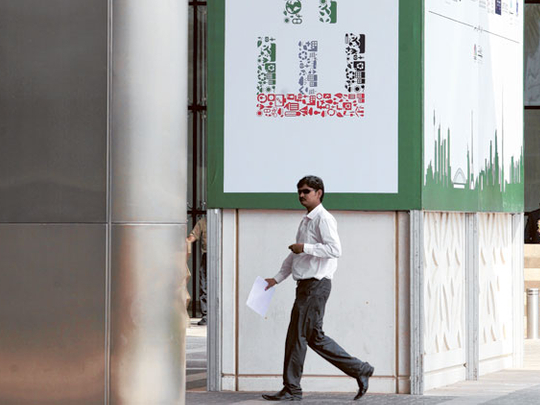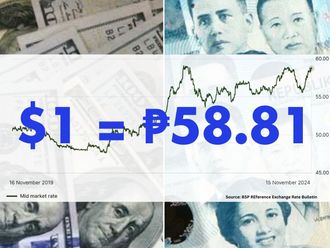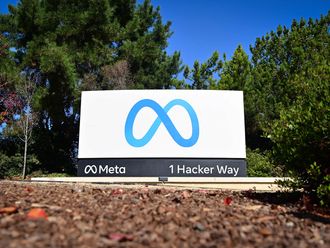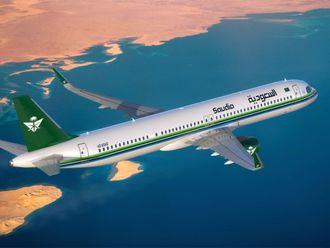
Dubai: Energy efficiency and the development of clean and renewable energy is gaining momentum globally as also in the GCC — which will be the focus of the three-day World Energy Forum that starts today at the Dubai International Convention and Exhibition Centre.
The prestigious event, that takes place outside the United States for the first time, will be inaugurated by His Highness Shaikh Mohammad Bin Rashid Al Maktoum, Vice-President and Prime Minister of the UAE and Ruler of Dubai.
More than two dozens heads of states will speak on various energy-related issues that affect the everyday lives of people and are of public concern. The Secretary-General of the United Nations will deliver a keynote speech among a long list of leaders including the Kuwaiti Emir Shaikh Sabah Al Ahmad Al Sabah, Georgian President Mikheil Saakashvilli, Sri Lankan President Mahindra Rajapakse, Pakistani Prime Minister Raja Pervez Ashraf, President Bakir Izetbegovic of Bosnia and Herzegovina, Tunisian President Munsif Marzouki, Maldivian President Mohammad Waheed Hassan Manik and Andry Rajoelina, President of Madagascar, among others.
“Very often, the issue of energy efficiency is overlooked or under-achieved,” Saeed Mohammed Al Tayer, Vice-Chairman of Dubai Supreme Energy Council and Managing Director and CEO of the Dubai Electricity and Water Authority (Dewa) said.
To improve energy efficiency and to create a proper roadmap for the best energy mix for Dubai, the government of Dubai formed the Supreme Energy Council in 2009 that announced the Integrated Energy Strategy 2030 for Dubai that clearly states its future roadmap for the next two decades.
Dubai Government’s investment in power development and desalination will cross $10 billion (Dh36.72 billion), he said.
“With the new technology and energy efficiency, we will have $20 billion energy-saving potential,” Al Tayer said.
Under the strategy, Dubai will have 12 per cent power generated by clean coal technology, 5 per cent by renewable energy, 12 per cent nuclear and the remaining 71 per cent powered by gas.
“Power demand will increase by 4.5 per cent annually for the next 18 years in Dubai. However, despite this, we expect to achieve 30 per cent reduction in energy consumption by strengthening fuel efficiency,” Al Tayer said.
“We have achieved 84-90 per cent fuel utilisation efficiency and 99 per cent in liquefied natural gas usage.”
As part of the strategy, Dubai last year created a regulatory body for the power and energy sectors. The government has started work on a 1 gigawatt solar power plant — Mohammad Bin Rashid Solar Park —while Abu Dhabi is set to commission its first solar power plant this year.
Meanwhile, Maria Van Der Hoeven, Executive Director of the International Energy Agency, said, “Governments should create an investment climate of confidence in clean energy, unlock the incredible potential of energy efficiency ‘the hidden’ fuel of the future.”
She said renewable power will grow from 4.75 terawatts in 2012 to 6.25 terawatts by 2017.
“Non-hydro renewable sources grow at faster rates than hydropower.”
The event takes place at a time when the GCC states, that control 11 per cent of the $600 billion global petrochemical industry, are looking at clean and green technologies to fuel their economies, including nuclear power. Over the next five years, the Gulf’s market share of the global petrochemical industry will jump to over 17 per cent, according to an industrial study.
“The GCC is truly the centre of gravity for the Gulf petrochemical industry, with huge local and external investments and global major players partnering with local companies projecting to increase the share of GCC region in the production of petrochemicals,” said Satish Khanna, General Manager, Al Fajer Information and Services, which organises a number of events, including Arabplast.
Rising demand from Asia and increasing European appetite for Middle Eastern products are also helping absorb the surge in production of plastics and petrochemicals by fast-expanding GCC manufacturers.
“The petrochemical industry is a major contributor to the GCC economies. The Gulf is the leading export hub of plastics raw material to the world, thanks to companies from the UAE, Qatar, Oman, Kuwait and KSA. Leading petrochemical companies in the Gulf do not depend on the Middle East market because they export to more than 150 countries worldwide.”
The three-day event will conclude with new policy guidelines that are expected to have a far-reaching impact on promoting clean and green energy.












